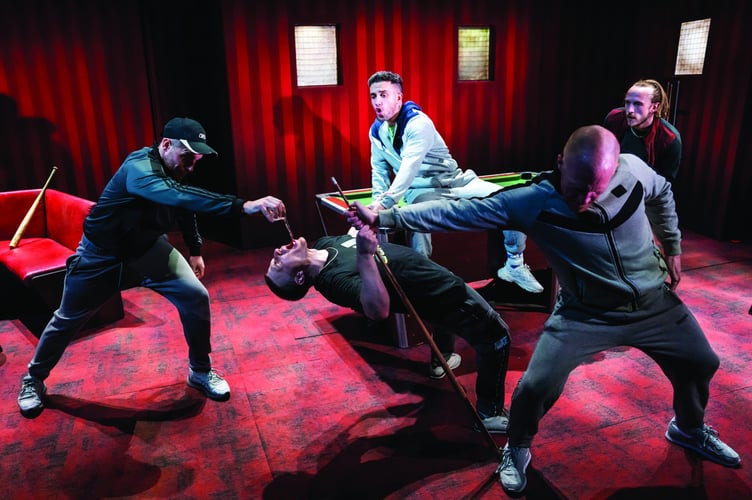A SWITCH from 16th century Venice to a pub on a run-down Yorkshire housing estate may not be every Shakespearean’s dream – but that’s how Frantic Assembly are treating their latest production of Othello.
However, artistic director, Scott Graham is proud that “every word you hear in our Othello was written by William Shakespeare over four centuries ago.”
For Graham, working on a text written by Shakespeare is no different to collaborating with the many contemporary writers with whom the company works.
“Shakespeare’s really very good,” he laughs. “It’s 400 years of genius. We feel very lucky to be collaborating with one of the best writers in the world.
“We never wanted to rewrite Shakespeare, we never wanted to compromise the language, but we did want to do a version of Othello where the clarity of the world, of the storytelling and of the tensions and meanings in the play are made very clear. If you do that and do it well, then you can sneak the language in under the radar.”
In the original play, Othello is the black man who has risen to become an admired army general, but Frantic have made him the leader of a local gang.
However, the cracks in his position begin to show when he marries the daughter of a local white man. In 110 violent minutes, set around a pool table in a pub, the jealousy of gang member, Iago – who feels over-looked and under-appreciated-- turns malignant, and he persuades Othello that his young bride, Desdemona, has been unfaithful. With tragic consequences.

Graham is acutely aware that many of us are put off Shakespeare for life by our experience of the plays at school, so he sees it as his job to make Othello – a play about power, male rage, jealousy and murder — seem freshly-minted.
Othello has been one of the company’s greatest successes and brought Frantic new admirers from teenagers to teachers. But when the idea of staging a Shakespeare play was first suggested more than 15 years ago, the company – which has a pioneering approach to British theatre - didn’t think Shakespeare was for them. Graham hadn’t even read the play.
When he did, he recognised that the themes of friendship, sex, betrayal, jealousy and violence were remarkably similar to those which the company had already been mining in a series of productions inspired by their own lives and interests. The question was whether they could do that with Shakespeare?
The stakes were high. Shakespeare is a cultural icon. People have fixed ideas about how the plays should be produced, what you can and can’t do with them.
“It was a risk,” he recalls, “for the first time there was baggage around the play we were staging. Sometimes people hadn’t liked the shows we had made, and that’s always fine, but this was the first time that it felt as if somebody might see the show and say ‘you’re wrong, you can’t do that with Shakespeare’.”

Instead, audiences, both young and old, were relieved to experience a production which didn’t feel like some kind of cultural medicine, but a Shakespeare show that was genuinely thrilling.
The current tour of Othello is its third iteration. The current revival lands in a post-Brexit world where there is much talk of levelling up and where cultural movements such as Black Lives Matter and #MeToo have created ripples beneath the surface of daily life.
“At Frantic we’ve always been trying to make theatre which feels as if it is about now,” says Graham.
“Going back and looking at the play again, I realised how much it is about community. At the start of the play community is working. An outsider, an immigrant, has been welcomed in and rises within that community. But then something happens, and it sparks a darker reaction which allows a slow poison to be dripped into that community and take root. The way it happens so easily is frightening.”
Frantic Assembly’s Othello will be at the Yvonne Arnaud Theatre, Guildford, from tomorrow, Tuesday 1 November until Saturday 5 November.




